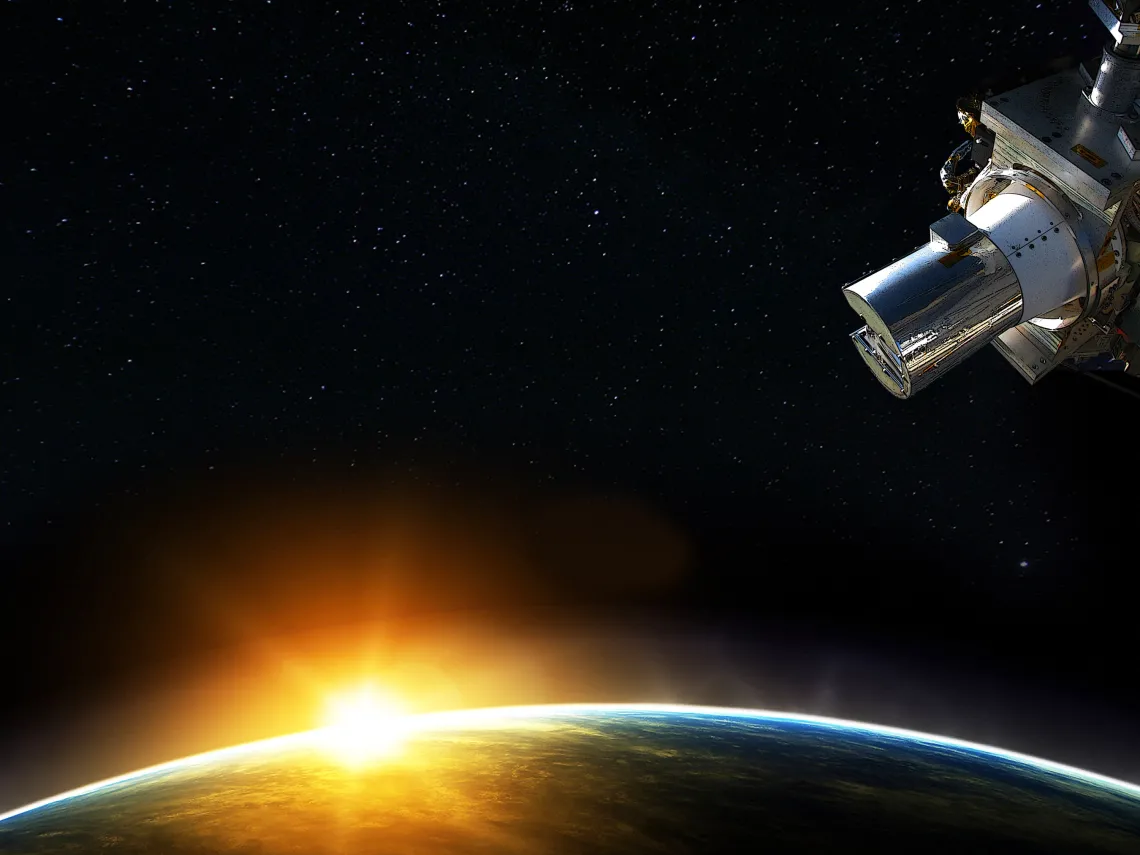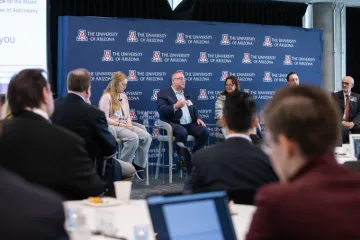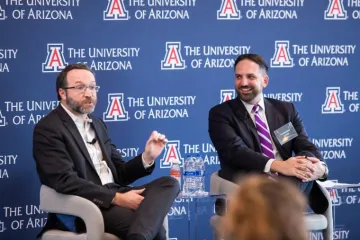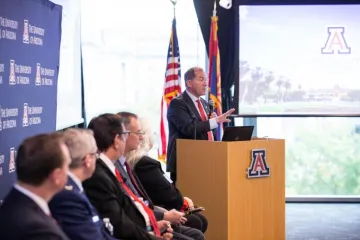The Final Frontier: UArizona Law Hosts Forum on the Present and Future of Space Law and Policy
Panelists and attendees included stakeholders, thought leaders, and experts from science, law, industry and government, including national security.

In October 1967, the United States entered into the Outer Space Treaty (OST), which deemed space a domain to be shared by all nations and laid out the basis for international space law. In October 2022, 55 years after the treaty’s signing, the University of Arizona James E. Rogers College of Law convened “The Future is Almost Now: Issues in Space Law and Policy,” a forum on the present and future of space law and policy.

Hosted at the University of Arizona Washington D.C. Center for Outreach & Collaboration, the event included a series of panels and a keynote conversation reflecting on a broad range of topics from the Outer Space Treaty and property rights, to responsible stewardship of the Moon, to the crowding of low earth orbit and national security in orbit and beyond.
“So many of us think that Space Law simply requires you to take the law that we have here on Earth, and export it to outer space,” explained Christopher Griffin, University of Arizona Law director of Empirical & Policy Research and member of the event planning committee. “But you quickly find out that the nature of disputes in outer space are qualitatively different there than on Earth.”
Space law encompasses a broad range of rules, principles and international agreements governing space-related activities. In the early 1900s, international law recognized an individual country’s sovereignty over the airspace directly above their territory. But during the Cold War, when the world’s first artificial satellite was launched, and space exploration began crossing transnational boundaries, space law became its own separate field. Today, space exploration is no longer just for scientific pursuits. Non-state actors and private businesses have made the field more congested and contested. As space becomes big business, regulations will become more important for protecting everything from humans on Earth to life on other planets and interests in between.

A relatively under-studied field, this year’s forum was one of only a handful both nationally and internationally covering the topic. Panelists and attendees included stakeholders, thought leaders, and experts from science, law, industry, and government, including national security, to discuss challenges and their hopes for future solutions. The forum’s keynote was a conversation between Griffin and Alexander MacDonald, DPhil, chief economist at NASA. The two discussed the historical context around the initial signing of the OST as well as the missing pieces in the constellation of work that is being done by the government, the academy and the private sector relating to space policy and how non-scientists can impact the field.
The Future Is Now
The past several decades have seen more nations establish their own defensive space commands and diversify their space technologies. While much attention has been paid to the geostrategic and economic significance of space, issues of space governance have been left on the backburner, and few U.S. law schools have designated programs to train the next general of space advocates. University of Arizona Law hopes to grow beyond just the forum in the coming years—setting the stage to develop a full-fledged Space Law program that examines legal measures to ensure the safety and sustainability of space for the future ahead.
“One of the things we heard from both the public and private side during this conference was the need for a lot more people who at least have been exposed to the vast range of issues around Space Law,” said Marc L. Miller, dean of University of Arizona Law. “The University of Arizona has the credibility to be a leader in the area, and the College of Law is going to do whatever it can to support social, scientific, and legal research and activity alongside the University's stellar space science and astronomy programs.”

Being embedded in the University of Arizona, which leads the nation in astrophysics and NASA-funded activity, uniquely qualifies Arizona Law to help in the expansion of the study of space law, explains Griffin. The University is home to several high-profile space research and education efforts including the OSIRIS-REx mission, which is led by planetary science professor Dante Lauretta; the design and development of the Near-Infrared Camera onboard the James Webb Space Telescope by Regents professors Marcia and George Rieke; the Richard F. Caris Mirror Lab which is working to produce the high-powered mirrors for the Magellan Telescope; a NASA-funded ASTEROIDS laboratory; the National Science Foundation Center for Quantum Networks and the Lunar & Planetary Laboratory.
“Hollywood often thinks of space as the final frontier, but when it comes to space law and policy, we’re essentially just getting started,” says Griffin. “We are just getting a grip on what that frontier looks like and how we should regulate our activities in orbit. It’s exciting for the College of Law to join in the creation of building a body of space law into the future."
Full recordings of the conference can be found here.
